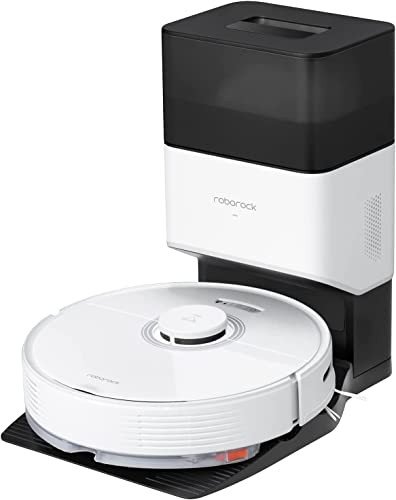4 Dirty Little Tips On The Robot Cleaner Industry
The Rise of Robot Cleaners in Commercial Spaces
Intro
In the last few years, advancements in innovation have actually generated automation in different sectors, encompassing whatever from producing to client service. One notable development in this arena is the emergence of robot cleaners in commercial spaces. These automated cleaning machines have changed the way companies approach tidiness and maintenance, offering an option that is not only effective but likewise affordable. As business seek to improve their operational efficiency while preserving high requirements of hygiene, robot cleaners have actually become an essential part of modern commercial environments.
Understanding Robot Cleaners
Robot cleaners are autonomous gadgets equipped with sensors, video cameras, and artificial intelligence that enable them to navigate and tidy numerous surfaces without human intervention. Best Robot Floor Cleaner are available in different types and performances, catering to diverse commercial needs. Here's an introduction of the primary kinds of robot cleaners:
- Autonomous Vacuum Cleaners: These devices are created for effectively vacuuming floors, particularly in environments such as workplaces, retail areas, and warehouses.
- Scrubbing Robots: These robots are tailored for hard surface areas, using scrubbing and cleaning services to deal with difficult discolorations and gunk.
- Disinfection Robots: Equipped with UV-C light or chemical sprayers, these robots concentrate on decontaminating locations, significantly minimizing the presence of harmful germs and viruses.
Table 1: Types of Robot Cleaners and Their Features
Type of Robot Cleaner
Main Function
Suitable Environment
Key Features
Self-governing Vacuum Cleaner
Floor vacuuming
Workplaces, Retail Spaces
Sensors for browsing barriers, scheduling
Scrubbing Robot
Tough surface cleaning
Storage facilities, Hospitals
Dual-brush system, adjustable settings
Disinfection Robot
Surface area disinfection
Healthcare settings
UV-C or electrostatic spraying technology
Benefits of Using Robot Cleaners in Commercial Spaces
The integration of robot cleaners in commercial environments offers a myriad of benefits:
Increased Efficiency
Robot cleaners operate autonomously, enabling them to tidy areas at any time of the day or night without the need for human supervision. This effectiveness is particularly advantageous for large centers that experience high foot traffic, as these robots can cover more ground in less time.
Constant Cleaning Quality
Robot cleaners are developed to carry out regularly, operating on pre-programmed settings customized to the particular needs of the environment. This ensures a reliable requirement of tidiness throughout the center.
Cost-Effectiveness
While the initial investment in robot cleaners may be considerable, the long-lasting cost savings can be substantial. Robot cleaners lower the need for a large cleaning staff, lessen human mistakes, and can decrease costs related to cleaning supplies.
Improved Safety
In settings like healthcare facilities and labs, preserving health is vital. Robot cleaners minimize human contact with possibly harmful products or locations, consequently improving overall safety.
Eco-Friendliness
Many modern robot cleaners are developed with sustainability in mind. They effectively utilize water and cleaning items, typically geared up with settings that minimize waste. This contributes to a greener technique to cleaning in commercial spaces.
Secret Considerations Before Implementation
While the advantages are substantial, companies need to think about different aspects before purchasing robot cleaners:
Space Design: The design of the facility can impact a robot's effectiveness. Areas with multiple challenges might need advanced designs geared up with advanced navigation systems.
Maintenance: Although robot cleaners are usually low-maintenance, they do require regular checks to guarantee optimum efficiency. Having a dedicated service technician or service contract may be needed.
Software application Updates: The innovation behind robot cleaners develops quickly. Keeping the software up to date is important for keeping functionality and security.
Integration with Current Systems: Understanding how robot cleaners can be integrated into existing cleaning procedures is important to optimizing their prospective benefits.
Case Studies: Successful Implementation of Robot Cleaners
Case Study 1: A Large Retail Chain
A large retail chain implemented self-governing vacuum cleaners across its numerous stores. The robots enabled cleaning to take place during hours of operation, which significantly decreased labor costs and improved total shop tidiness. The chain reported a 25% increase in customer satisfaction, directly attributing it to the boosted shopping environment.
Case Study 2: A Local Hospital
A healthcare facility deployed disinfection robots to deal with extensive cleaning regimens, particularly in waiting locations and operating spaces. These robots effectively alleviated infection dangers while allowing cleaning personnel to focus on other pressing jobs. The medical facility kept in mind a significant decline in post-surgical infection rates, confirming the efficiency of robotic disinfection.
Frequently Asked Questions About Robot Cleaners in Commercial Spaces
Q1: Are robot cleaners ideal for all commercial environments?
- A: While robot cleaners are versatile, their viability might differ based on area style and cleaning requirements. It is important to examine the specific requirements and layout of your commercial area.
Q2: How much do robot cleaners cost?
- A: The price of robot cleaners can range widely based on their features and abilities. Fundamental models may start at ₤ 1,000, while advanced models can cost upwards of ₤ 10,000.
Q3: How often do robot cleaners require upkeep?
- A: Robot cleaners typically need very little maintenance. Routine checks and software application updates are suggested, while parts like filters may require changing based upon usage.
Q4: Can robot cleaners work alongside human staff?
- A: Yes, robot cleaners are designed to complement human staff instead of replace them. They can take control of regular cleaning jobs, permitting personnel to concentrate on more complex tasks.
The commercial cleaning landscape is witnessing a considerable transformation through making use of robot cleaners. These gadgets match human effort, boost tidiness, and contribute to cost savings, making them a worthwhile investment for companies wanting to enhance their functional performance. As innovation continues to evolve, the capabilities of robot cleaners are likely to broaden, further strengthening their function in maintaining tidiness in commercial spaces. With mindful factor to consider of individual needs and an ingenious technique, services can welcome this technology to develop a cleaner, more secure, and more efficient workplace.
